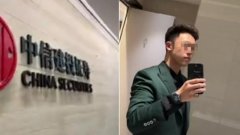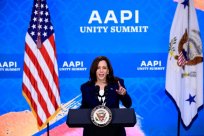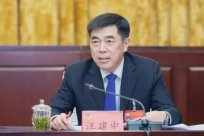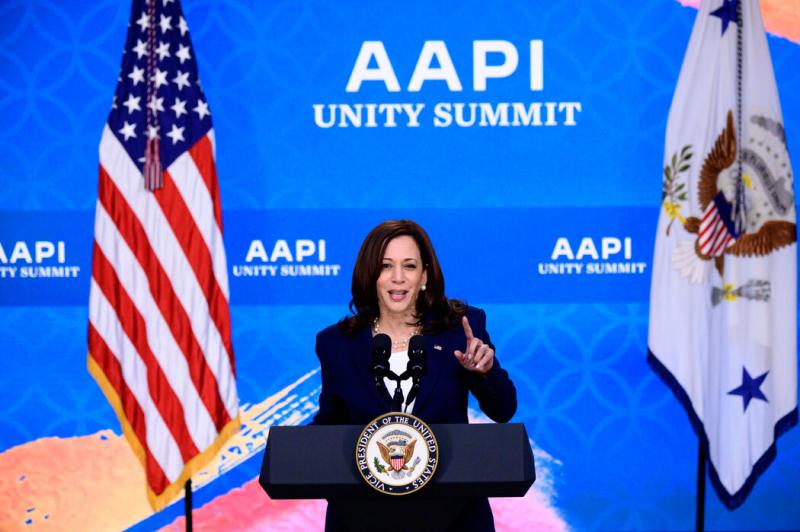
Daniel Jiang (Yin) Remember that a Asian American participated in the presidential election in 2020: Taiwanese American entrepreneur Yang Anze.But last week he was surprised to learn that at the time and 2024, there was another person who participated in the campaign that he was Asian Americans, and she was He Jinli.
"I have never had such an impression," said the Taiwanese Americans from Connecticut, and Daniel Jiang, 38, said.
He Jinli, who may become a Democratic presidential candidate, is widely known as the first black woman elected vice president.
But her mother is an Indian immigrant and her father is a Jamaica immigrant. She is not widely known as an Indian and Asian.According to the recent investigation of the Asian Americans, when a famous Asian American was asked, only 2%of Americans chose He Jinli.
He Jinli does not deny her Indian descent and Asian Americans.She often talks about the profound influence of Indian mother and grandfather on her life.When she delivered a speech at the assembly of Asian American leaders as Vice President, she often used the word "us" to call herself "a member of the community."
He Jinli, who began to be a senator in 2017, is a member of the Asian -Pacific American core group and the Congress of the Congress Black Core Group.She has always been the high -profile agent of the Bayeng government in Asian Americans. She hosted a lamp festival and a Lunar New Year celebration in her residence in Washington, and even held the Asian -themed night market.
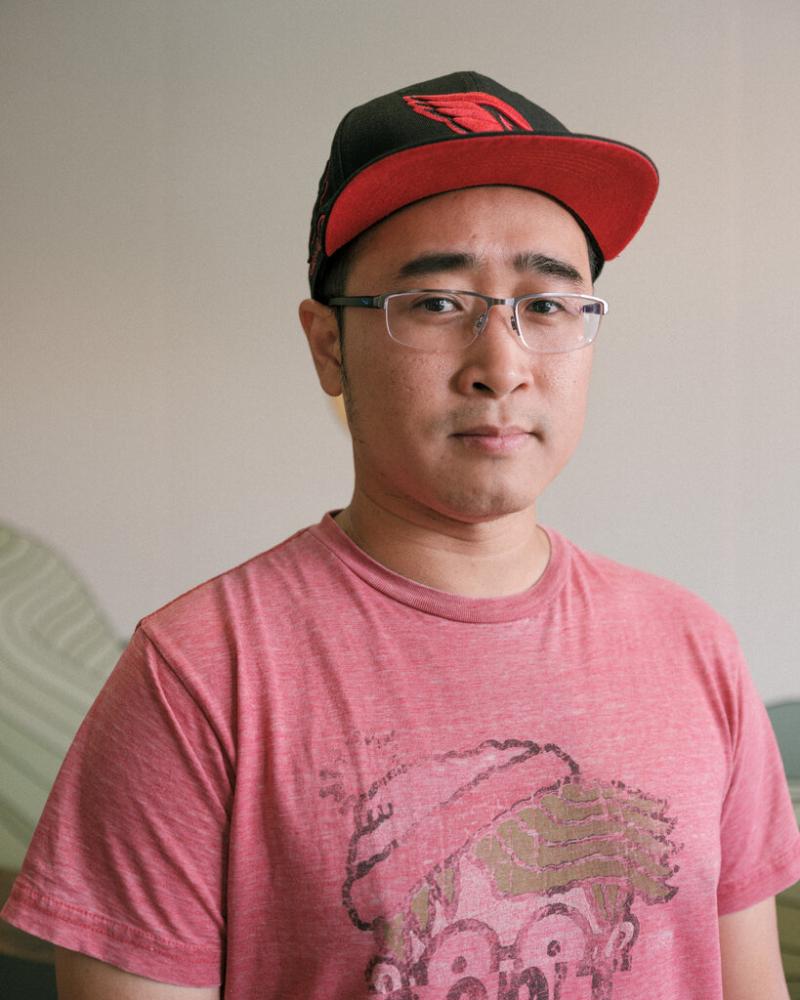
For a long time, He Jinli has been doubtful about her racial identity, saying that she is comfortable and proud of her background.
"I have never had a crisis of identity," He Jinli said in 2020 to the host of the Los Angeles Times "enough Asian"."I think, what makes me frustrated is that people think that I should have such a crisis and need to explain it, but I don’t."
He Jinli has not been regarded as a change in American racial boundaries by Asians and Americans.In the United States, the number of diverse ethnic Americans continues to grow, and only some Asian Americans accept the "big tent" Asian American racial identity compatible with compatibility.
When he became the Vice President in 2020, He Jinli was considered to achieve multiple milestones.She was widely considered to be the first black woman who played this role.She is also the first Asian American woman, the first South Asian woman, the first Indian woman, and the first colorful woman.(In her small biography of the White House, she is called "the first South Asian American" who is the role of this position.)
The word "Asian Americans" is both geographical and racial label and political and cultural identity.Since the students in the San Francisco Bay Area created this label in 1968, the word has developed greatly, and now it includes people who use more than 20 countries and use more languages.
However, how many Asians and Americans will support He Jinli for common cultural identity, it is unknown.Data from Petou Research Center show that more than half of the Asian adults living in the United States said they most often use specific labels -such as Chinese or Indian people to reflect their ethnic identity.
In the United States, when the word "Asian Americans" use it, it is still mainly associated with East Asians, partly because the Japanese and the Chinese are the earliest Asians who came to the United States.
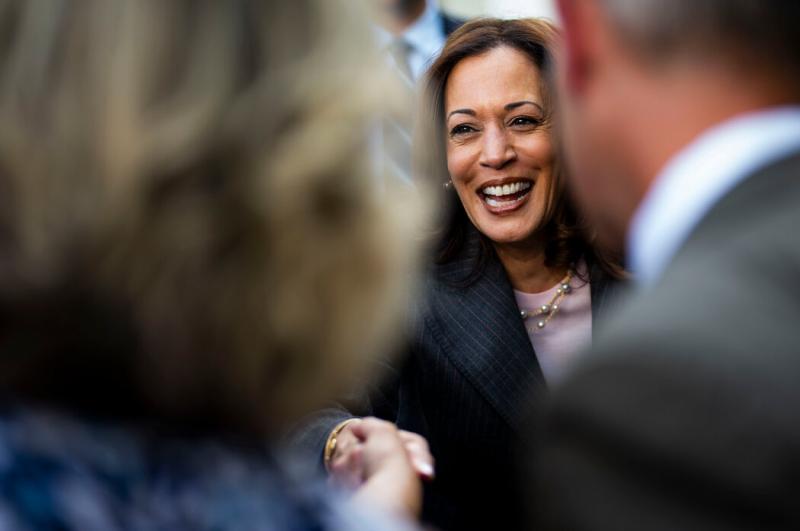
The survey shows that Asian Americans and more common Americans regard Indians and Pakistan as Asian as Asians than that of Chinese and Korean as Asians.Although the population census report last year shows that the number of Indians has surpassed Chinese and has become the largest Asian group in the status group recognized by the United States. This situation has not changed much.
"Who is classified as Asian Americans and the Pacific Islanders has a long time, and there are still controversy today," said Sara Sara Savani, a professor of political auxiliary professors from Pomona College."Many Indian Americans do not necessarily think that the labels of Asian Americans are suitable for them."
The San Francisco Bay Area, which grew up, has long been one of the most diverse regions in the United States.
"If you come from such a place, you live in differentiated communities, and diverse races are not abnormal," Nitasha Tama Charma, a professor of black research and Asian American research professor in Northwestern Universityexplain.
Shilma said that although the American people of diversified race are one of the fastest population in the United States, the public's understanding of the multi -race is still lagging, especially when these races are not white.According to the population census in 2020, more than 33 million Americans -about one -tenth -believe that they belong to two or more races, this number has increased by nearly 25 million people over the past ten years.
"Obama provided us with some words that talk about the multi -ethnicity in the United States," Saerma said.But she said that for the public, He Jinli was another matter.
37 -year -old Vietnamese American Ruan Nan (sound) is from Glenidal, Arizona.He said that seeing people who also consider themselves as Asians appeared at the forefront of the presidential candidate, they felt "pretty good."But Ruan Nan said that it was even more exciting that He Jinli could become the first female president in the United States.
"It is not important to me," he said.
Some Asian Americans are very excited about this.On Wednesday, more than 1,500 people -including California Councilor Zhao Meixin, US trade representative Dai Qi, and former Deputy Minister of Justice Vanita Gutta, etc. -responded to the appeal of Asian and American women to support Vice President.Said that Vice President is a member of his own.
Indian Americans also have obvious excitement.Many Indian Americans like He Jinli very much. They like to listen to her story about going to Jinnai to visit relatives when she was a child, and her love for southern Indian cuisine such as steamed rice noodles and pancakes.
Indian Americans advocate the organizational IMPACT chairman Neil Makaja that in a few days after she announced the president, Indian Americans have joined the ranks of volunteers and donations.Many people also reposted her praise to her on social media: "In Sanskrit, Kamala means 'LOTUS' (Lotus). In the United States, it means Potus," POTUS is US President’sabbreviation.
The IT project manager of Felfax, Virginia, and Lahul Vagehhani, 40, said that his family was very excited about the first Indian American president and the first female president.After He Jinli announced the election, they donated $ 50 to her campaign.
"My son often said,‘ I want to be the first Indian President of India, ’” Indian American Watthani, an American citizen in 2016."Maybe he will become the second one."
60 -year -old Kate Walren said: "I know what she might have experienced -a lot of orthodox concepts, many attention to education, and many very strict family concepts. This makes me more respect her." Asian and American civil rights leaders said that during the tenure as Vice President, He Jinli emphasized that it is necessary to ensure that the voice of Asian Americans is included in important issues such as voting rights.
Yang Chongyuan, chairman of Washington advocated the organization of the "Asian and American Justice Promotion Center", recalled that in his meeting with He Jinli, she often talked about ensuring that Asians and Americans would not encounter language barriers when they voted.EssenceHe Jinli has previously talked aboutHer immigrant mother was discriminated against because of the English accent.
Although some people do not think that Indian people are the first identity of He Jinli, they still feel very close to her, because they are all immigrants -or they feel like an outsider who is trying to read the mainstream American society.
The 22 -year -old Cambodian and Laos American American Mallinga Une read books in Seattle. She said: "Sometimes people may not understand that we must integrate into American culture, nor do we understand that our parents sometimes try to integrate into American culture.How difficult. However, like any group, the attraction of representativeness is also limited.From Cleffton, Virginia, Kate Walren, 60 this year, is the same as He Jinli, and one -half of the Tymir Brandon descent of Tamil Nadeon, south of India.She said she felt a personal connection between herself and He Jinli.
"I know what she might have experienced -a lot of orthodox concepts, many attention to education, and many very strict family concepts," Walren said."This makes me more respect her."
Danwen said that these similarities have nothing to do with her decision.Although Valren mainly voted to the Democratic Party in the past, she said that she was deeply worried about the Democratic Party's position on crimes and education. She was still considering whether to vote to He Jinli in November.
"I was a little proud to see her standing there," Warren said."But I pay more attention to those issues, not someone’s ethnic identity."

